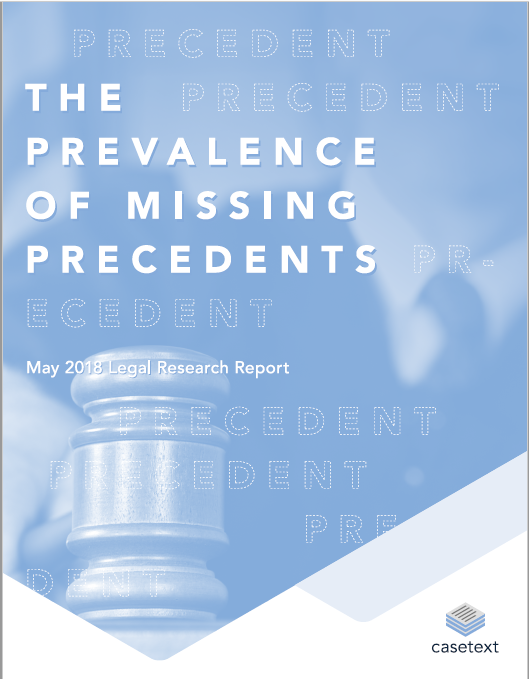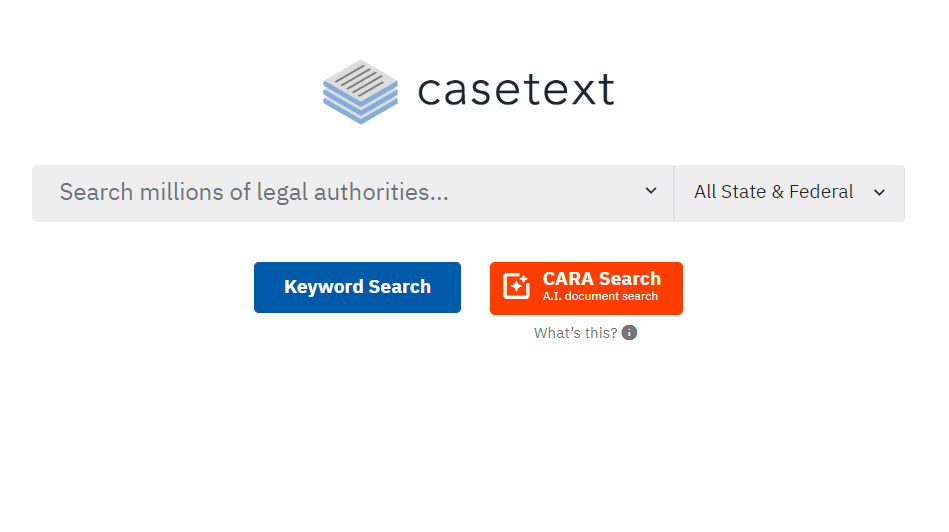Most judges in a survey say that they see lawyers miss relevant precedent in their legal research and that those missing cases have impacted the outcome of a motion or proceeding.
 The legal research company Casetext surveyed 66 federal and 43 state judges to learn whether missing precedent over affects the outcome of a matter. The survey asked just two questions:
The legal research company Casetext surveyed 66 federal and 43 state judges to learn whether missing precedent over affects the outcome of a matter. The survey asked just two questions:
- How often do you or your clerks uncover case law that attorneys should have cited in their briefing but did not?
- Has a party missing a precedent before your chambers impacted the outcome of a motion or proceeding?
With regard to the first question, every one of the judges have seen attorneys miss relevant cases. Over 27 percent see it happen the majority of the time or in almost every case. Less than 17 percent see it only rarely.
With regard to the second question, more than two-thirds of judges surveyed said that attorneys missing relevant precedent has materially impacted the outcome of a motion or proceeding.
Overall, 68 percent of judges have experienced missing precedent impacting the outcome of a motion or proceeding.
For Casetext, the takeaway of this survey is that lawyers should use its CARA artificial intelligence technology to help find missing cases.
I am a proponent of using tools such as CARA to help round out one’s research. But I would take it a step further and say this survey suggests the importance of using multiple services in your legal research.
Last year, I wrote about research by Susan Nevelow Mart, director of the law library and associate professor at the University of Colorado Law School, which shows that different legal research platforms deliver dramatically different results. In a comparison of six leading research providers, there was hardly any overlap in the cases that appeared in the top-10 results returned by each.
No research service is perfect, that means. While AI tools may help make a given service better, it still will not be perfect.
Download the survey: The Prevalence of Missing Precedents.
 Robert Ambrogi Blog
Robert Ambrogi Blog